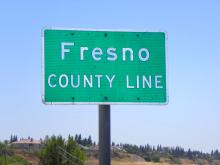
The United States Office of the Comptroller is hosting a webinar at the end of the month called “Banks Finance Broadband in Rural Areas & Indian Country” aimed at banks and local leaders looking to form partnerships to fund broadband projects for rural and tribal communities across the country.
In addition to providing basic information on how community financial institutions can work with local governments, participants in a 2017 partnership which brought broadband to Fort Berthold Indian Reservation will be present to discuss their experience and answer questions.
Register for the event by clicking here.
New Rule, New Financing Options
Tribal communities face a host of ongoing connectivity obstacles, all of which have been exacerbated by the current public health crisis. Native student populations are much more likely to be affected by the homework gap, a problem that will remain as states and school districts struggle to put together a cohesive connectivity plan for the upcoming school year.
The program is one of the many that together come from the OCC's participation in the Community Reinvestment Act (CRA), passed in 1977. The CRA directs federal financial regulators (including the Board of Governors of the Federal Reserve System, the Office of the Comptroller of the Currency, and the Federal Deposit Insurance Corporation) to push FDIC-insured financial institutions to meet the credit needs of the communities they’re a part of, with emphasis on low- and moderate-income regions.
A new rule allows banks to consider broadband an essential infrastructure for financing projects, giving rural stakeholders wider access to capital for those kinds of ventures under consideration. It was adopted by the Federal Financial Institutions Examination Council, of which the OCC is a member agency, in July of 2016 [pdf]. The Council now cites Internet infrastructure among the host of other projects (e.g. hospitals, industrial parks, waste infrastructure, housing, schools, flood control) eligible for funding in order to “revitalize or stabilize an underserved nonmetropolitan middle-income geography" and "meet essential community needs, including needs of low- or moderate-income individuals.”
Webinar attendees can learn how in North Dakota the Reservation Telephone Cooperative, First International Bank and Trust, and the USDA Rural Utilities Service partnered to bring $20 million worth of broadband infrastructure to the Fort Berthold Indian reservation in McKenzie County. In addition, topics covered include:
- Why banks finance rural broadband?
- How banks finance rural broadband?
- How and why banks form partnerships with public agencies?
Speakers include Teresa Whiteley, Compliance Manager, First International Bank and Trust and Shane Hart, General Manager, Reservation Telephone Cooperative, with Timothy Herwig, District Community Affairs Officer, OCC, serving as moderator.
Register now for the webinar.
Ongoing Efforts
In 2018 we covered the OCC’s report “Expanding Internet Access: Bank Financing for Rural Broadband Initiatives,” which outlined how communities and banks could find permanent financing through the U.S. Small Business Administration’s 7(a) Loan program, other types of construction financing and working capital, new market tax credits, and municipal bond investments. Download the full report here [pdf], and stay current on our coverage of connectivity efforts on tribal lands.
Listen to episode 369 of the Community Broadband Bits podcast below, where South Dakota Telecommunications Association’s Greg Dean talks with Christopher about fiber optic deployment in South Dakota and how a variety of groups — from cooperatives to tribal networks — have pursued creative solutions make the state one of the most fiber-rich in the country.







